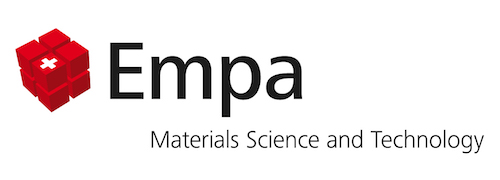
Energy-autonomous embedded systems and the Internet-of-Things
Course Objectives
This course is organized in collaboration with EMPA.
The FSRM discounts don't apply to this course. The course language is English.

During the last two decades we have seen a tremendous rise of opportunities and technology in the areas of sensor technology, data processing and communication, and wireless (as well as wired) network technology. This has lead, together with an on-going trend in miniaturization and integration of sensors and electronics, to the concept - and in part the advent - of the so-called Internet of Things: Small functional units, in most cases wireless electronic sensor systems, are distributed across large environments and serve as distributed network nodes, in order to acquire, process and transmit data in a complex networking fashion. Reaching from consumer and biomedical applications over industrial process control and smart home appliances to environmental sensing and precision agriculture, this Internet-of-Things may span, in a near future, over almost every area of our daily living.
When addressing this topic, every designer, potential supplier or user of this technology will run into complex questions of system design, operation and application, related to the following basic questions :
- How to supply an embedded system node with energy, with mimimum effort in installation, maintenance and cost?
- How to enable a reliable operation of the same, given a limited on-site energy budget and detrimental influences onto e.g. wireless communication ?
- How to operate such systems in different application scenarios with their respective requirements and boundary conditions.
This one-day course will give a basic insight and overview on these three questions, with a focused discussion of energy-autonomous embedded systems, using energy harvesting for their supply instead of costly and maintenance-intensive power grids or batteries. This will continue into concepts of local energy storage, wireless communication and, finally, application-adapted system design. Practical case scenarios and demonstrated applications are shown e.g. for consumer applications, smart home, environmental sensing or industrial process control.
Target group
Development engineers (electronics, embedded systems, IoT), Product managers in the tech/IoT sector, R&D managers and Intellectual Property managers, Technical project managers, Innovation managers, urchasers of technical systems, Technically experienced decision-makers (C-level, divisional management) University-related specialists (e.g. applied research), Patent-related people.
Content
- Energy-autonomous embedded systems and IoT: Introduction, motivation and challenges
- Solar energy harvesting: in-door and out-door photovoltaics
- Thermal energy harvesting: Thermoelectrics
- Mechanical energy harvesting: basics with examples from piezoelectric and electromagnetic generators
- Electronic power management and system control
- Energy storage
- Wireless communication and IoT infrastructure: an overview
- Applications: Environmental sensing
- Applications: Industrial process control
- Applications: Infrastructure monitoring and home automation
- Applications: Consumer, IoT, wearables and biomedical
This course is organized in collaboration with EMPA.
The FSRM discounts don't apply to this course. The course language is English.

During the last two decades we have seen a tremendous rise of opportunities and technology in the areas of sensor technology, data processing and communication, and wireless (as well as wired) network technology. This has lead, together with an on-going trend in miniaturization and integration of sensors and electronics, to the concept - and in part the advent - of the so-called Internet of Things: Small functional units, in most cases wireless electronic sensor systems, are distributed across large environments and serve as distributed network nodes, in order to acquire, process and transmit data in a complex networking fashion. Reaching from consumer and biomedical applications over industrial process control and smart home appliances to environmental sensing and precision agriculture, this Internet-of-Things may span, in a near future, over almost every area of our daily living.
When addressing this topic, every designer, potential supplier or user of this technology will run into complex questions of system design, operation and application, related to the following basic questions :
- How to supply an embedded system node with energy, with mimimum effort in installation, maintenance and cost?
- How to enable a reliable operation of the same, given a limited on-site energy budget and detrimental influences onto e.g. wireless communication ?
- How to operate such systems in different application scenarios with their respective requirements and boundary conditions.
This one-day course will give a basic insight and overview on these three questions, with a focused discussion of energy-autonomous embedded systems, using energy harvesting for their supply instead of costly and maintenance-intensive power grids or batteries. This will continue into concepts of local energy storage, wireless communication and, finally, application-adapted system design. Practical case scenarios and demonstrated applications are shown e.g. for consumer applications, smart home, environmental sensing or industrial process control.
Development engineers (electronics, embedded systems, IoT), Product managers in the tech/IoT sector, R&D managers and Intellectual Property managers, Technical project managers, Innovation managers, urchasers of technical systems, Technically experienced decision-makers (C-level, divisional management) University-related specialists (e.g. applied research), Patent-related people.
Content
- Energy-autonomous embedded systems and IoT: Introduction, motivation and challenges
- Solar energy harvesting: in-door and out-door photovoltaics
- Thermal energy harvesting: Thermoelectrics
- Mechanical energy harvesting: basics with examples from piezoelectric and electromagnetic generators
- Electronic power management and system control
- Energy storage
- Wireless communication and IoT infrastructure: an overview
- Applications: Environmental sensing
- Applications: Industrial process control
- Applications: Infrastructure monitoring and home automation
- Applications: Consumer, IoT, wearables and biomedical
- Energy-autonomous embedded systems and IoT: Introduction, motivation and challenges
- Solar energy harvesting: in-door and out-door photovoltaics
- Thermal energy harvesting: Thermoelectrics
- Mechanical energy harvesting: basics with examples from piezoelectric and electromagnetic generators
- Electronic power management and system control
- Energy storage
- Wireless communication and IoT infrastructure: an overview
- Applications: Environmental sensing
- Applications: Industrial process control
- Applications: Infrastructure monitoring and home automation
- Applications: Consumer, IoT, wearables and biomedical
This course is currently not scheduled. Please contact us in case of interest.
|
» Contact us!
From five people, we will reach out to find a date that is convenient for you |
Duration
1 day
Fees
Early bird price : 690.00
Normal price : 690.00
Course Language
English
